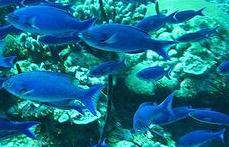70國的國家科學院6月1日發出警告「全球變暖導致全球各大海洋酸化的現象,決不能受忽略而被排除在今年12月的聯合國哥本哈根(Copenhagen)氣候會議議程外。」
這項警訊刊登在英國皇家學會、英國國家科學院和69個各國院校透過「學院間專門小組」聯合發佈的一份聲明中。小組成員還包括阿根廷、辛巴威等國。
聯合國在波昂舉行的氣候會議籌備會開幕式中引述這項聲明。此次會談將奠定哥本哈根協商的框架,設定碳減排目標,達成必要協議,以避免氣候變化帶來的風險。此外,協議將銜接在2012年即將到期的京都議定書。
參加波昂會議的代表首次考慮將協議的結果記錄成案,作為各國政府起草哥本哈根商定結果的基礎。53頁的文件包括長期合作的共識、加強建立有關危機過渡、減災、資金、技術、能力等議題,唯獨沒有提到各科院校警告可能釀成災難的「海洋酸化問題。」
各科院校在聲明中表示「海洋吸收了自工業革命以來,人類活動排放到大氣中約四分之一的二氧化碳,造成海洋急遽和無法逆轉的化學變化。」
同時,聲明中呼籲所有領導人:
- 正視大氣中不斷增加的碳濃度是直接和實際導致海洋酸化的原兇,目前的濃度足以對環境產生不良影響,並且隨著碳濃度達到450ppm (每100萬立方含微粒)和以上極可能危及重要海洋生態系統;
- 在聯合國氣候變化框架公約(UNFCCC)談判的範圍內,認可大氣中日益增加的二氧化碳被海洋吸收后,對人類構成直接的威脅,因此需採取行動疏緩危機;
- 同意降低大氣中二氧化碳是唯一減輕海洋酸化的可行解決方案;· 在聯合國氣候變化框架公約(UNFCCC)談判的範圍內,認可大氣中日益增加的二氧化碳被海洋吸收后,對人類構成直接的威脅,因此需採取行動疏緩危機;
- 落實減少全球碳排放量的行動,2050年前削減90年代排放量的50%以上,之後持續減少;
- 提振海洋酸化抵抗力,減少過度捕撈和污染等加重海洋生態系統負擔的行動。
負責聯合國氣候變化事務最高官員,聯合國氣候變化框架公約執行秘書(Yvo de Boer)布爾表示,目前所有商談的結果令人鼓舞。「幾個主要經濟論壇中,各國作出有益於達成哥本哈根協議的承諾。在應對金融危機方面,許多國家啟動的刺激方案也把綠色經濟目標納入了考量。哥本哈根會議倒數只剩200天,雖然時間很緊湊,但全球努力挽救氣候變化的腳步卻不停歇。」
The increasing acidity of the world's oceans due to global warming must not be left off the agenda at the United Nations Copenhagen climate negotiations in December, 70 of the world's science academies warned today.
The warning is made in a statement published by the Royal Society, the UK national academy of science, and the academies of 69 other countries around the world - from Argentina to Zimbabwe - through their membership of the InterAcademy Panel.
The academies' statement was issued today at the opening of a preparatory UN climate conference conference in Bonn. Talks here will shape the Copenhagen negotiations, where agreement must be reached on carbon emission reduction targets needed to avoid dangerous climate change. This agreement will take up where the Kyoto Protocol leaves off when it expires in 2012.
Delegates at Bonn are considering for the first time a real negotiating text that can serve as a basis for governments to start drafting a Copenhagen agreed outcome. The 53-page text covers the issues of a shared vision for long-term cooperative action, along with enhanced action on adaptation, mitigation and finance, technology and capacity building. But the issue of ocean acidification is not mentioned in the negotiating text, an oversight that the science academies warn could be catastrophic.
In their statement, the scientific academies say the oceans have absorbed about a quarter of the carbon dioxide emitted to the atmosphere by human activities since the industrial revolution, resulting in rapid and irreversible changes in ocean chemistry.
The statement calls on world leaders to:
· Acknowledge that ocean acidification is a direct and real consequence of increasing atmospheric CO2 concentrations, is already having an effect at current concentrations, and is likely to cause grave harm to important marine ecosystems as CO2 concentrations reach 450 parts per million and above;
· Recognize that reducing the build up of CO2 in the atmosphere is the only practicable solution to mitigating ocean acidification;
· Within the context of the UNFCCC negotiations, recognise the direct threats posed by increasing atmospheric CO2 emissions to the oceans and therefore society, and take action to mitigate this threat;
· Implement action to reduce global CO2 emissions by at least 50% of 1990 levels by 2050 and continue to reduce them thereafter;
· Reinvigorate action to reduce stressors, such as overfishing and pollution, on marine ecosystems to increase resilience to ocean acidification.
The UN's top climate change official, UN Framework Convention on Climate Change Executive Secretary Yvo de Boer, said he is encouraged by negotiations to date. "The Major Economies Forum began with a firm commitment to contribute positively to a Copenhagen agreement and, in response to the financial crisis, many national stimulus packages have been launched that include green economic objectives. With only 200 days before Copenhagen, time gets tighter but the world is not standing still on climate change."






